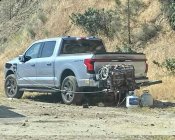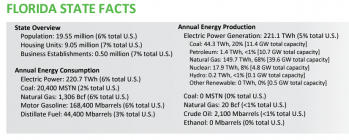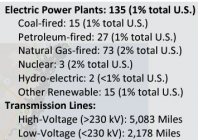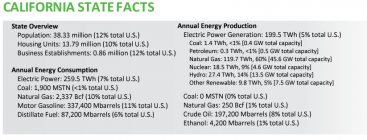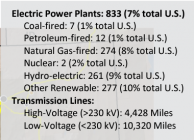In a better world, we would prioritize how to generate safe clean power and how to build the grid before we would assume the role of politicians is to ban oil/coal first and not ask where the energy would come from or how to move it.
Doing things in the wrong order can only lead to one conclusion. The plan to fail and crash the system is intentional. Sort of like forcing a huge change in healthcare first then finding out how bad that idea really was. Now the damage is done and it is too late for anyone reading this to fix it.
Does anyone recall "you have to pass this bill to find out what is in it" or "if you like your doctor you can keep your doctor"? EVs are being pushed on us by those same folks.
They have no plan and know they can hide the math and push a story before folks wake up. By then it is too late.
Nothing would stop the government from taking a lead role in pushing for a nuclear grid while they work the alternatives in the background.
Even if the generators are ignored for a moment, the emergency of the grid upgrades is a formidable task yet they have no solution or plan in place if given all the electricity to replace gas today.
Just ask them how much energy change that is for the present grid and they give you that blank stare and take someone else's question. They have been told to push the oil/coal bans but have not been told how much that will take, because in my opinion there was never any intention of solving the problem.
So if we take a 7th grade view to keep it where politicians can follow the math it is simple to put a rough number on how much we use now and how much it will take to replace gasoline.
When an oil tanker delivers fuel over the roads to a fuel station, you will need to replace that capacity on the grid. Sure, many folks say they charge at home and avoid super chargers, but all of it arrives over the present grid, so isn't it a fair question to ask roughly how much is that? So if you waved a magic wand and all the oil went away today, and there was magic electricity to replace it, how much roughly are we asking about?
Most numbers are published but the ones that are missing do not require calculus or statistics to estimate.

The US national average household energy consumption statistic is 29 kWh per day at the last estimate. That is just for perspective, it doesn't include industrial use.

The last US total electrical consumption was 4.05T kWh for 2022.
If we divide that by 365 days to get a rough US daily average that is 11,100,000,000 kWh per day

The US average gasoline consumption per day is roughly 370,000,000 gallons per day.

To convert that gasoline in gallons to energy in kWh, we multiply by roughly 33.7 kWh per gallon, which brings the gasoline energy use per day to roughly 12,469,000,000 kWh per day.
For perspective that is 11.1x10^9 kWh now but an additional 12.5x10^9 kWh per day or an increase of 112% of our present consumption energy capacity per day just for the gasoline to change to electricity.
I didn't add diesel yet, which adds even greater burden to the grid to convert to electrical energy.
I didn't mention that diesel does the heavy lifting in the world, but most folks are not familiar with all that so for now lets just play dumb and focus on gasoline.
As a short term goal, places like the Post Office, School busses, and those who have access to 440V3PH power can handle overnight charging without a huge upset to the grid. Why not try to study those first and see how things go? If this is the emergency they say it is, why isn't that done first?
Households don't have the zoning for industrial three phase power, even if it is close by. Maybe they should re-think those rules and drop us the lines for efficient charging? Maybe there is a reason for this?
It will still not answer a looming question of how will the electrical power be generated when a significant fraction of the cars switch over due to laws and mandates by force or executive fiat.
It is very clear we can't do it even past the 50 year horizon and even the last Argonne National Labs study concluded that the 50 year horizon favors the plug in hybrid, not the EV. You can't dig up the copper fast enough to meet those deadlines, not in the US or world wide.
Would it be fair to say that the economics of either gasoline or electricity would be upset by political mandates, or another way of saying this is if they ban gasoline or diesel use that the costs of those will skyrocket as oil investments are cut back as the bans approach?
Most folks will adapt to things that make sense, but this isn't about making sense if the plan is to ban the fuel before they have the plan to generate the alternative. This isn't really about how well EV's work or don't, it is about a change in society and power politics in the face of the physics of doing the work. If you ban oil/coal before you have the alternative, you will starve the planet.
To get diesel into perspective, multiply barrels by 42. Diesel use was 3,850,000 barrels per day x42 = 161,700,000 gallons per day. Diesel is roughly 38 kWh per gallon, so the electric energy power replacement would require roughly another 6,144,600,000 kWh per day to the grid.

Ask for the plan to upgrade the grid, not just here but all over the world, or how they will explain the extra electrical power to account for the oil/coal ban and see what their answer is. You may not look at the whole topic as just EV versus oil any more. YMMV












